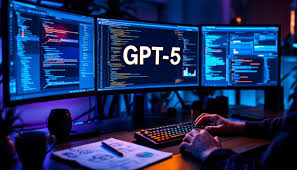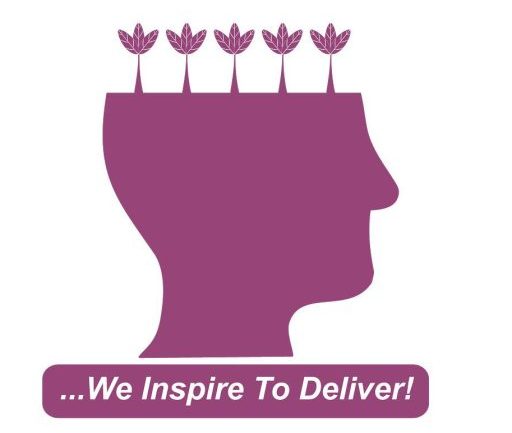Hey, Tech enthusiast! Your Daily Dose of Tech This Monday is here @DawentsIT …We Inspire To Deliver!
Your Daily Dose Of Technology News – September 29, 2025.
1. Big Tech & Policy:

– EU fines Google €3.8B over Android rules (finalized)
– What happened: The European Commission today confirmed a €3.8 billion fine against Google for abusing dominance in Android to favor its own apps and search engine, closing a long-running antitrust case. The decision requires Google to change how it ties its search and Play Store services on Android devices sold in the EU.
– Context: This is one of several antitrust actions the EU has taken against US tech firms in recent years. Google signaled it will appeal, and has already announced adjustments to licensing and bundling practices in Europe.
– Impact: Expect changes to default search arrangements on Android phones in Europe, new user choice screens, and increased competition for preinstalled apps — while Google may push regulatory challenges and try to limit revenue impact with licensing tweaks.
– US Congress moves on AI oversight bill
– What happened: A bipartisan group of senators unveiled updated language to a proposed AI governance bill aimed at transparency, safety testing for foundation models, and risk-based obligations for companies deploying powerful AI systems. The bill includes whistleblower protections and funding for a new AI safety office within the NTIA (National Telecommunications and Information Administration).
– Context: Lawmakers are responding to a string of high-profile AI incidents and public concern about misinformation, job disruption, and national security. The bill attempts to strike a balance between oversight and preserving US AI competitiveness.
– Impact: If passed, the law would push companies to document model training datasets, conduct pre-deployment risk assessments, and register high-risk models with regulators; expect industry lobbying and negotiations on scope and enforcement mechanisms.
In Other News:
2. Security & Privacy:
– Widespread phishing campaign exploits AI-generated voice deepfakes
– What happened: Security firms warned of a coordinated phishing campaign that used voice-cloned messages to impersonate executives and instruct staff to wire funds or reveal credentials. Several businesses reported losses; investigators link the campaign to an organized fraud group using public audio samples and AI voice tools.
– Context: Voice deepfakes have become easier and cheaper to produce; defenses (biometric voice authentication) remain immature.
– Impact: Increased corporate focus on multi-factor verification and guidelines for finance workflows. Expect security vendors to accelerate voice liveness detection and provenance markers.
– Major data breach at regional health network
– What happened: A US regional healthcare provider disclosed a breach affecting 3.6 million patients; attackers accessed medical records and some billing information. The provider attributed the breach to compromised third-party vendor credentials.
– Context: Healthcare remains a top target due to high-value PII and PHI (protected health information).
– Impact: Likely regulatory investigations, fines, and increased attention to third-party risk management across the sector.
3. Startups & funding:

– Generative AI startup funding normalizes; later-stage deals dominate
– What happened: Q3 funding data released today show venture capital investment into AI startups is stabilizing after the hyper-growth of 2023–24. Seed deal count declined while later-stage rounds for infrastructure and enterprise AI remain strong.
– Context: Investors are favoring companies with clear revenue paths (security tooling, vertical AI SaaS) over consumer-facing LLM apps.
– Impact: Early-stage founders may face tougher terms; infrastructure and compliance-focused startups could see continued investor interest.
4. Big Product Launches & Services:
– Meta rolls out Horizon OS integration with Quest 3 Pro
– What happened: Meta launched an update to its Horizon platform and an enterprise-focused Quest 3 Pro configuration that includes advanced passthrough AR, improved eye- and hand-tracking, and developer tools for mixed-reality productivity apps.
– Context: Meta is pivoting more into productivity and enterprise use cases while still supporting consumer gaming/entertainment.
– Impact: New MR app opportunities for collaboration, training, and visualization; continued competition with Apple and specialized MR headset makers.
– Tesla releases Full Self-Driving (FSD) 12.4 beta with new routing
– What happened: Tesla pushed a new FSD beta iteration to a subset of owners that emphasizes an updated routing stack, more aggressive intersection handling, and improved local mapping updates using fleet data.
– Context: Regulators remain cautious in many jurisdictions; some safety advocates call for stricter limits on beta deployments.
– Impact: If stable, incremental improvements may expand the fleet’s autonomous capabilities; regulators and insurers will watch crash and disengagement data closely.
5. Regulation & Geopolitics:
– US export controls extended to medium-capability AI chips
– What happened: The US Commerce Department announced an expansion of export controls to cover certain mid-range AI accelerators, narrowing the list of chips that can be shipped abroad without license.
– Context: Part of ongoing tech-geopolitics between the US and China and efforts to limit adversaries’ access to advanced compute.
– Impact: Chipmakers may need new licensing processes; governments and companies will reassess supply-chain strategies and potential impacts on AI R&D in affected regions.
Odds And Ends:
6. AI and Generative Models:

– OpenAI releases “GPT-5 Mini” and new developer tools
– What happened: OpenAI launched GPT-5 Mini — a smaller, cheaper variant of GPT-5 optimized for latency-sensitive and on-device applications — along with an SDK for efficient fine-tuning and safety evaluation suites. OpenAI also rolled out an “attribute-based” safety API allowing developers to set constraints (e.g., hallucination tolerance, refusal rates).
– Context: The release targets a growing market for more affordable, lower-latency models that can be embedded in apps and edge devices. Competitors like Anthropic and Meta issued statements emphasizing their own model families.
– Impact: Mobile apps and startups can integrate powerful generative features with lower cost and faster inference. Raises fresh questions about model licensing, export controls, and the spread of high-capability models outside large cloud providers.
– Anthropic unveils “Claude Enterprise Guardrails”
– What happened: Anthropic introduced a suite of enterprise-focused safety tools for its Claude models, including model behavior monitoring, dataset provenance tracing, and automated red-teaming pipelines.
– Context: Enterprises increasingly demand auditability and control over generative AI outputs for compliance-heavy industries (finance, healthcare).
– Impact: Could accelerate enterprise adoption of Anthropic’s models, and pressure rivals to offer similarly robust governance features.
7. Chips & Hardware:
– Apple announces M4 family, broader NPU upgrades
– What happened: In a press release today Apple confirmed the M4 family rollout for late 2025 Macs and iPads, emphasizing significant NPU (neural processing) improvements and mixed-precision accelerators to run large models on-device more effectively. They also previewed a developer framework enabling model quantization and on-device adaptation.
– Context: Apple continues to push on-device AI as a privacy and performance differentiator versus server-based AI.
– Impact: More capable on-device AI in macOS and iPadOS apps (real-time assistants, local transcription, privacy-preserving personalization). Pressure on app developers to optimize models for Apple silicon variants.
– TSMC to expand 3nm capacity in Japan
– What happened: TSMC announced a multibillion-dollar expansion of its 3nm wafer fab capacity in Japan through a new joint-venture facility, citing customer demand for high-efficiency chips for AI and mobile.
– Context: Ongoing semiconductor supply-chain diversification and governments’ push to bring advanced manufacturing outside Taiwan/China.
– Impact: Longer-term relief for capacity bottlenecks for advanced nodes; strengthens Japan’s role in the semiconductor ecosystem.
8. Science & Research:
– Breakthrough in room-temperature superconducting material (replication announced)
– What happened: A consortium published replication results confirming a previously reported room-temperature superconducting material under specific high-pressure conditions. The replication narrows parameter uncertainties but highlights practical barriers (extreme pressures).
– Context: Room-temperature superconductivity is a milestone but real-world application still requires solving pressure and stability challenges.
– Impact: Stimulates funding and research into scalable synthesis techniques; practical applications remain speculative in the near term.
What to watch this week:
– EU Parliament votes on AI Act amendments — could sharpen compliance costs for vendors.
– Apple special event rumored for Oct 7 — expect iPad/Mac hardware and deeper on-device AI demos.
– DOJ and FTC statements on Big Tech antitrust investigations likely to influence market behavior.
If you need a summary on any specific topic or more detailed information on emerging tech trends, feel free to ask us @DawentsIT or visit our website at www.dawentsit.com
Follow us for updated news, articles, and videos. Read more on http://www.dawentsit.com/ #Technology #DawentsIT #TechnologyNews #Tech #Google #PlayStore #EU #AndroidPhone #AI #DeepFakes #AllThingsTechnologyNews #AllThingsTechnologyNewsToday #WeInspireToDeliver
